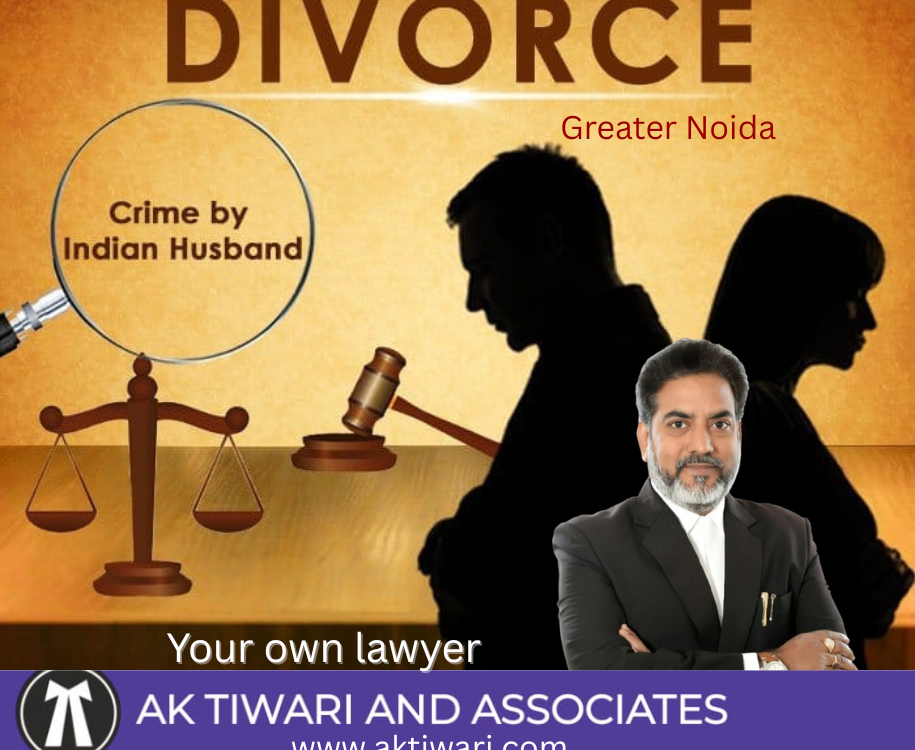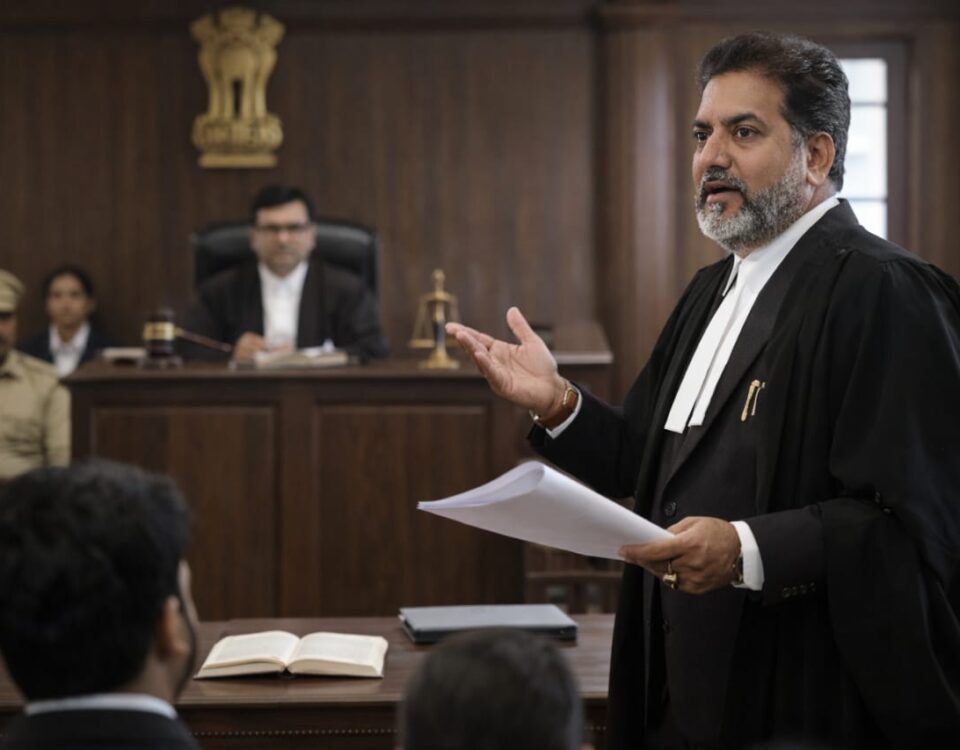
Void and Voidable Marriages
Annulment Lawyer in Noida
Marriage is one of the most significant institutions in any society, and its legal implications in cases of annulment, separation, or divorce can have far-reaching consequences. One critical area of matrimonial law involves understanding the differences between a void marriage and a voidable marriage. These terms, although often confused, refer to the legality and validity of a marriage, especially in situations where the marriage is contested, or its validity is questioned. Whether you are seeking annulment, dealing with inheritance matters, or determining custodial rights, understanding these concepts is fundamental. The distinction between void and voidable marriages is not only legally significant but also practically important when it comes to the rights and obligations of individuals involved in matrimonial disputes.
What is a Void Marriage?
A Void Marriage is defined as one that is considered invalid from the very start. From a legal perspective, a void marriage is treated as though it never existed at all. This means that the marriage is automatically deemed invalid, and the law disregards it as if the union never took place. Under Indian law, particularly Section 11 of the Hindu Marriage Act, there are specific grounds under which a marriage can be declared void. These include situations where one of the parties is already married to someone else, where the marriage is between close blood relatives, or where one of the parties is below the legal age for marriage. Additionally, marriages that lack mutual consent due to force, fraud, or manipulation, or where one of the parties is impotent and this fact was concealed before the marriage, are also considered void.
• Bigamy: If one of the spouses is already married and their existing marriage is still valid, any subsequent marriage entered into is automatically void. The law strictly prohibits bigamy, as it undermines the sanctity of marriage.• Incestuous Relationship: The law declares that any marriage between close blood relatives, such as siblings or between certain other relatives defined under the law, is void. This is to prevent marriage within families that could lead to genetic disorders or social harm.
• Underage Marriage: If either party is below the legal age of marriage (18 for women and 21 for men in India), the marriage is automatically void. These laws are in place to prevent child marriages and protect the rights of minors.
• Lack of Consent: If the consent of either spouse is obtained through coercion, fraud, or manipulation, the marriage is void. Consent must be free, mutual, and informed for the marriage to be valid.
• Impotence: If either spouse is impotent and this fact is concealed before the marriage, the union can be annulled. This is especially important in marriages where procreation is considered an essential part of the marital relationship.
Consequences of a Void Marriage:
A void marriage has several legal consequences, the most significant of which is that it is treated as if it never existed. This means there is no need for an annulment, as the marriage is automatically considered invalid. Children born out of a void marriage are legally considered illegitimate, although they may still have rights to maintenance, property, and inheritance in certain cases. In some instances, such as when there is a dispute over financial or property matters, individuals may still need to go to court to formally declare the marriage void. Moreover, spouses in a void marriage cannot claim any marital rights, such as alimony, maintenance, or inheritance, as the marriage is considered nonexistent in the eyes of the law.

What is a Voidable Marriage?
A Voidable Marriage is a marriage that is initially valid but can be annulled by a court based on specific legal grounds. Unlike a void marriage, which is automatically invalid, a voidable marriage remains legally valid unless the court decides otherwise. This means that the marriage will be recognized as legitimate until the party seeking annulment proves the grounds for declaring it voidable. Under Section 12 of the Hindu Marriage Act, a marriage can be considered voidable for reasons such as non-consummation, fraud or misrepresentation, mental illness, coercion, or the failure to disclose sexually transmitted diseases (STDs). This provides an avenue for individuals to seek justice if they find themselves in a marriage that they believe was entered into under fraudulent, harmful, or misleading circumstances.
• Non-consummation of Marriage: If the marriage has not been consummated due to the inability of either spouse to do so, the marriage may be annulled. Non-consummation is grounds for annulment, especially if it is evident that one party cannot fulfill the marital duties.• Fraud or Misrepresentation: If one spouse has intentionally misled the other about their identity, background, or intentions, the marriage may be annulled. Fraudulent behavior, such as concealing vital information or intentions about the marriage, can make the union voidable.
• Mental Illness or Unsound Mind: If one spouse was of unsound mind or suffering from a mental illness at the time of the marriage, the marriage may be voidable. Mental incapacity can affect a person’s ability to give informed consent, making the marriage invalid.
• Force or Coercion: If one party was forced or coerced into the marriage, this is another ground for annulment. Consent is a crucial element in any marriage, and if one party was under duress or coercion, the union may be legally invalid.
• Failure to disclose STDs: If a spouse failed to disclose the presence of a sexually transmitted disease or any contagious disease before marriage, it may be grounds for annulling the marriage. The failure to disclose such critical health information could be seen as fraudulent or deceptive behavior.
Consequences of a Voidable Marriage:
The consequences of a voidable marriage are quite different from a void marriage. Until the marriage is annulled by the court, it is legally valid. This means that the spouses retain their marital rights and responsibilities, including the potential for claiming maintenance, property rights, and inheritance. However, if the marriage is annulled, it is as if it never existed. Children born during the voidable marriage are considered legitimate, and they inherit the rights of children born in valid marriages. The spouse seeking annulment has the legal right to request this action through the court, and the annulment process could have significant consequences for property division, alimony, and child custody.
Difference Between Void and Voidable Marriage
The main difference between a void and a voidable marriage lies in their inherent legality. A void marriage is automatically considered invalid from the very beginning, meaning that the law treats it as though it never existed. No legal intervention is required to nullify it, and it is void from the outset. On the other hand, a voidable marriage is initially valid but can be annulled by the court based on specific grounds. A voidable marriage remains in effect until one party seeks to have it annulled by proving grounds like fraud, coercion, or incapacity.
Legal Proceedings for Void and Voidable MarriagesVoid Marriages:
In the case of a void marriage, the marriage is considered invalid, and formal annulment is not necessary. However, in certain situations, individuals may need to approach the court for formal declarations, especially if there are disputes regarding property, inheritance, or custody. A declaration by the court is often needed to ensure clarity in legal matters, as the marriage is treated as non-existent. While the marriage itself is void, other legal processes may be required to resolve associated issues.
Voidable Marriages:For a voidable marriage, annulment must be sought through legal proceedings. A party seeking annulment must file a petition in the family court, citing the specific grounds for annulment. The court will then examine the evidence and decide whether the marriage should be annulled. There is often a time frame within which the annulment must be sought, usually within one year of discovering the grounds for annulment. The court's decision to annul the marriage will have significant implications for financial matters, child custody, and property rights.
Important Points to Remember• Void Marriages are treated as never existing, meaning there is no legal obligation towards either spouse once the marriage is declared void. This includes rights to maintenance, inheritance, and other marital benefits.
• Voidable Marriages are still considered legally valid until annulled by the court. Therefore, spouses retain rights like property claims, alimony, and maintenance until the marriage is annulled.
• Children born from a void marriage are deemed illegitimate, whereas children from a voidable marriage are considered legitimate, with full inheritance rights.
• Annulment procedures for voidable marriages involve filing a petition in the family court, and the decision can influence the future of children, financial support, and custodial rights.
Conclusion
Understanding the legal distinctions between void and voidable marriages is crucial when facing matrimonial disputes. Whether dealing with the legitimacy of children, seeking financial support, or determining custody arrangements, these distinctions will play a pivotal role in the outcome of the case. If you are considering an annulment, facing a void or voidable marriage, or dealing with any matrimonial legal issues, it’s advisable to consult with a skilled family lawyer. A lawyer will guide you through the complex legal process, ensuring your rights are protected, and the process is handled efficiently. Seeking professional legal assistance is vital for navigating the intricacies of family law, especially when it comes to marriage invalidation.
For more detailed information or legal assistance, contact us. We specialize in matrimonial law, including annulments, divorce, and other marriage-related legal matters, offering expert legal representation to ensure fair and just outcomes.




